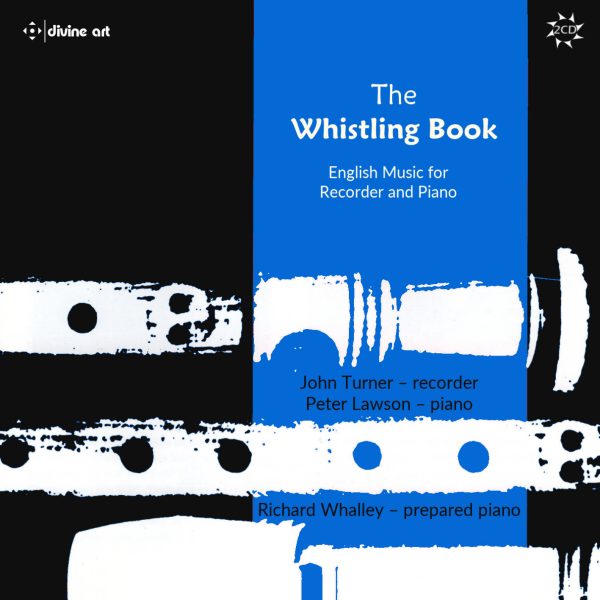The Chronicle Review Corner
The sleeve notes list all the composers featured and cite “Skally Skarekrow’s Whistling Book” from Geoffrey Poole as “pure entertainment, with catchy tunes and spiced-up traditional harmonies”, which probably sums up the album as whole.
Most of the pieces seem to have some connection with whistler-in-chief, John Turner, whose recorder features on all the tracks, and most of the music is melodic and tuneful. The tone ranges from gentle to the almost dance-able and on to the blues – “Barbecue Blues (When the Fire Goes Out)” from Alan Bullard. If you’ve never heard the blues played on recorder, it works surprisingly well. (The same composer’s Prawn Paella that follows is a tango). There’s also everything from trad English folk to Braveheart-style Celtic whimsy/music for slow motion movie scenes in a Scottish battle.
So while you might look at this – 31 tracks of mainly recorder and piano – with a feeling of slight anxiety, if not fear and panic (or maybe that was just us) it’s actually very good and anyone who wants an hour-and-a-half (66 minutes on CD1, 54 minutes on CD2 to be precise) of relaxing and witty music should give it a try. It’s not po-faced or serious, just some entertainment laid on for your delectation by skilled players.
It’s almost local too, as Turner is based in Manchester and the previously mentioned Mr Poole was/is head of composition at Manchester University.
Of the other composers, Michael Ball was born in Manchester, Alan Rawsthorne was born in Haslingden, Lancashire, and studied composition, piano and cello at the Royal Manchester College of Music and Douglas Steele was born in Carlisle but studied at Manchester University and the Royal Manchester College of Music and was later as assistant organist at Manchester Cathedral and taught at Chetham’s School and Stockport Grammar School.
The opener is Walter Leigh’s Air, a gentle piece that always induces a feeling of calm but is alas only one minute and 20 seconds long. Aside from the enjoyable Bullard food-based pieces, also worthy of mention is David Ellis’s Shadows in Blue, Op. 61.
Incidentally, we found an American review of this which described it as “the even keel of the British temperament,” though this was not good: “The execution is full of duty, so it lacks what the trained ear hopes to encounter with every performance of classical concert repertory, often called inspiration or bringing it to life. Thus although the contents are practical, straightforward, pleasant, and consistently good, they might not amount to pleasure for the most discerning potential listeners.” Happily for us, we are English so the album is apparently admirably suited to our temperament.
@divineartrecordingsgroup
A First Inversion Company
Registered Office:
176-178 Pontefract Road, Cudworth, Barnsley S72 8BE
+44 1226 596703
Fort Worth, TX 76110
+1.682.233.4978












